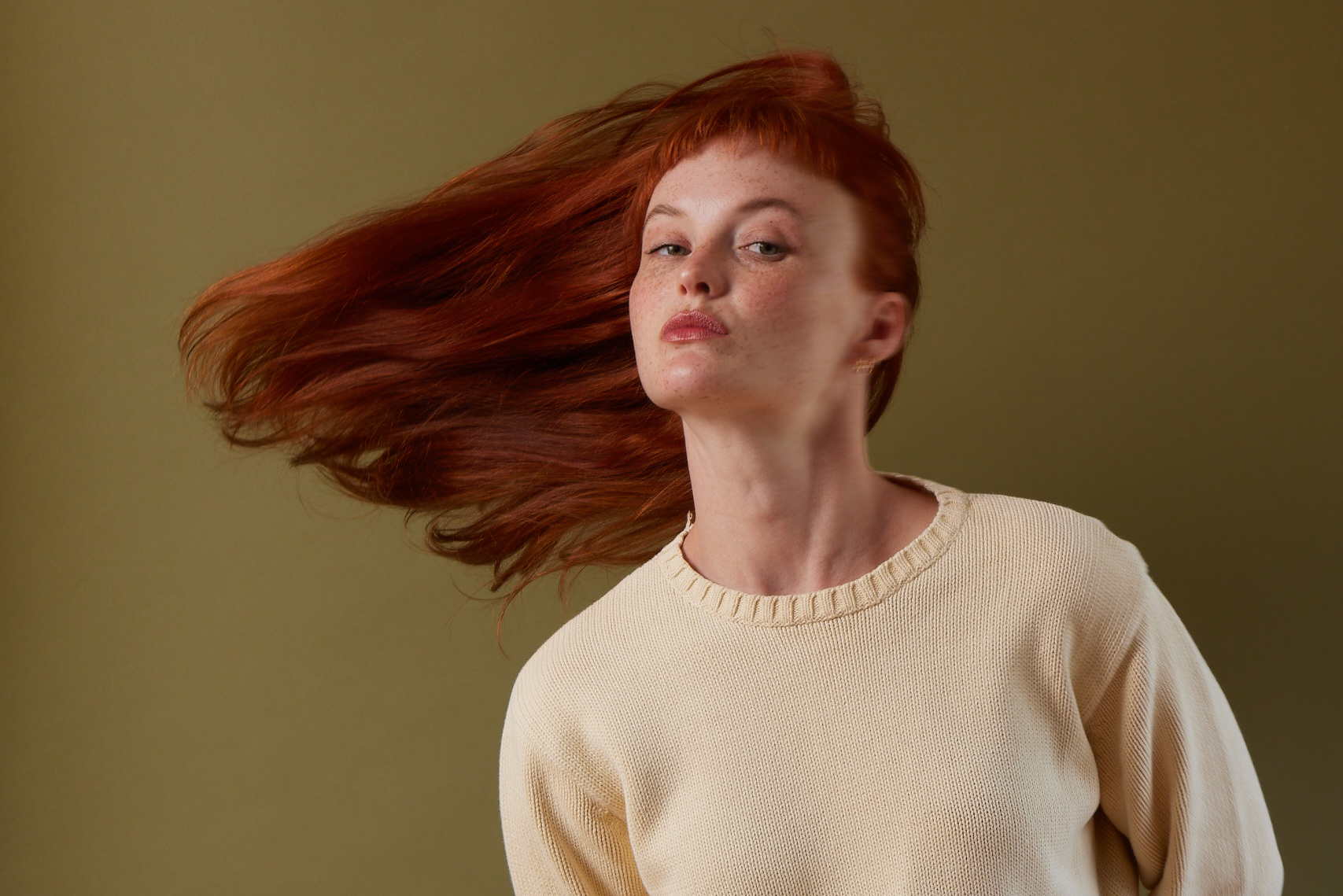It seems like Kacy Hill has experienced a million different music careers. There were the early days, when she moved from her hometown of Phoenix to LA where she began modeling and served as a backup dancer on the Yeezus Tour. After a deal with Kanye’s G.O.O.D. Music entity and a feature on Travis Scott's Rodeo, she went independent—a choice informed by the realization that no one in the music industry really had any idea what they were talking about.
After 2020’s Is It Selfish If We Talk About Me Again and 2021’s Simple, Sweet, and Smiling, Hill felt buried by the trauma of the pandemic, to say nothing of the exhaustion that came with releasing music into what felt like an ever-expanding void. “You put your heart and soul into it and then it’s like...five people on the internet saying, ‘We love your record,’” she says. She’s quick to admit that she appreciates those five fans immensely, but things got tough. A six-year relationship ended, and the burden of captaining her ship solo was starting to wear on her. She inked a deal with Nettwerk Music Group and began working on Bug, an album where she quit trying to be a perfectionist and instead created songs that simply made her feel good.
With production from Bartees Strange, Sega Bodega, and Jim-E Stack, as well as features from Nourished by Time and Donna Missal, the album is her most sonically complex to date. Lyrically, it’s beguilingly straightforward. Hill took cues from country music, opting to speak in blunt terms while becoming unwilling to mask her truest thoughts any longer. It’s an album that’s both vulnerable and confident. While Kacy Hill might never admit this, on Bug it sure sounds like she knows exactly what she’s doing.
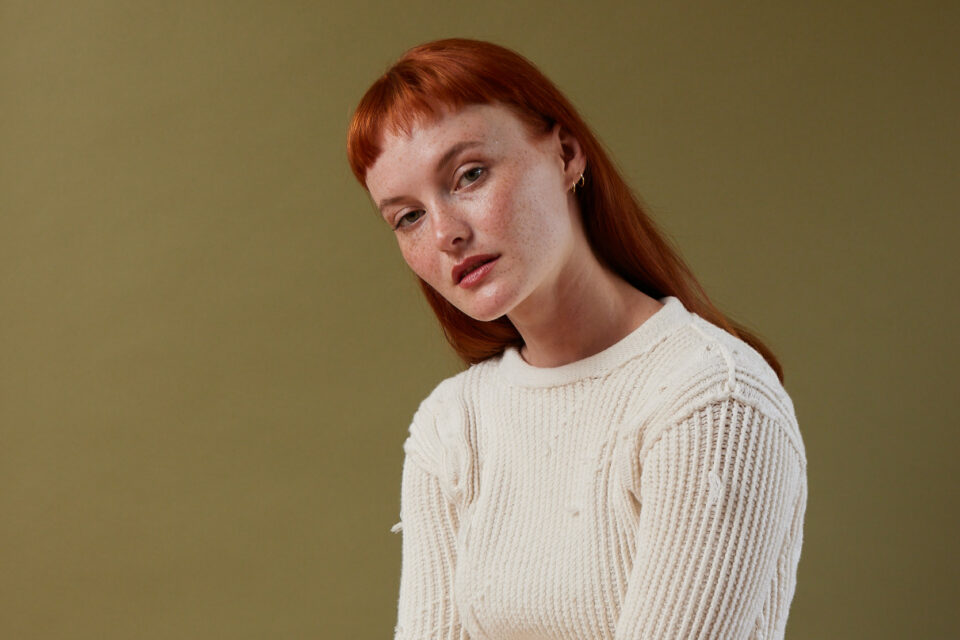
When did you go from writing songs to realizing you had a full album on your hands?
After I put out the last record, I was burnt out. I put out two records during a global pandemic, and it felt like the return you got [during this era] was just so paltry. I was pretty fried, and I didn’t know if I wanted to do this anymore. Quite frankly, I was about to change everything and start taking coding classes online.
I was passively writing songs and starting things on my own, and I thought about just doing a collaborative album. I was working with friends and reaching out to other artists to write together. Before I knew it, I was like, “Oh, there are actually a lot of songs here that I like.” I think it was when I met my friend Aidan Spiro—we did a lot of the record together. He brought his friend Aaron Wing, who’s such a lovely person and a great guitar player, and his friend Christian Taylor. We kind of hit it off and found a little vibe and that started to really bring the project together for me. Writing music started to feel fun again. I really needed to work with other people. The pandemic vibe was so isolating that that was part of the burnout. Eight months into writing I was like, “OK, I guess I’ll make an album.”
Was there anything in particular that you wanted to do differently than on one of the earlier records?
I wanted to take it less seriously and have fun. I had this realization that I’d been depressed for a long time, which is reflected in the themes of the album. I was like, “OK, I’m alive, so I might as well make the best of it if I’m here.” It was the same thing about music. It was a shift in the way I thought about it. I didn’t want to focus on whether something needed to be good or the best thing I’ve ever made. I had to remind myself that perfectionism sucks the joy out of making music. It was about trying to let go of that, and if things end up being beautiful, that’s beautiful—but they’re not always going to be.
“I had to remind myself that perfectionism sucks the joy out of making music. It was about trying to let go of that, and if things end up being beautiful, that’s beautiful—but they’re not always going to be.”
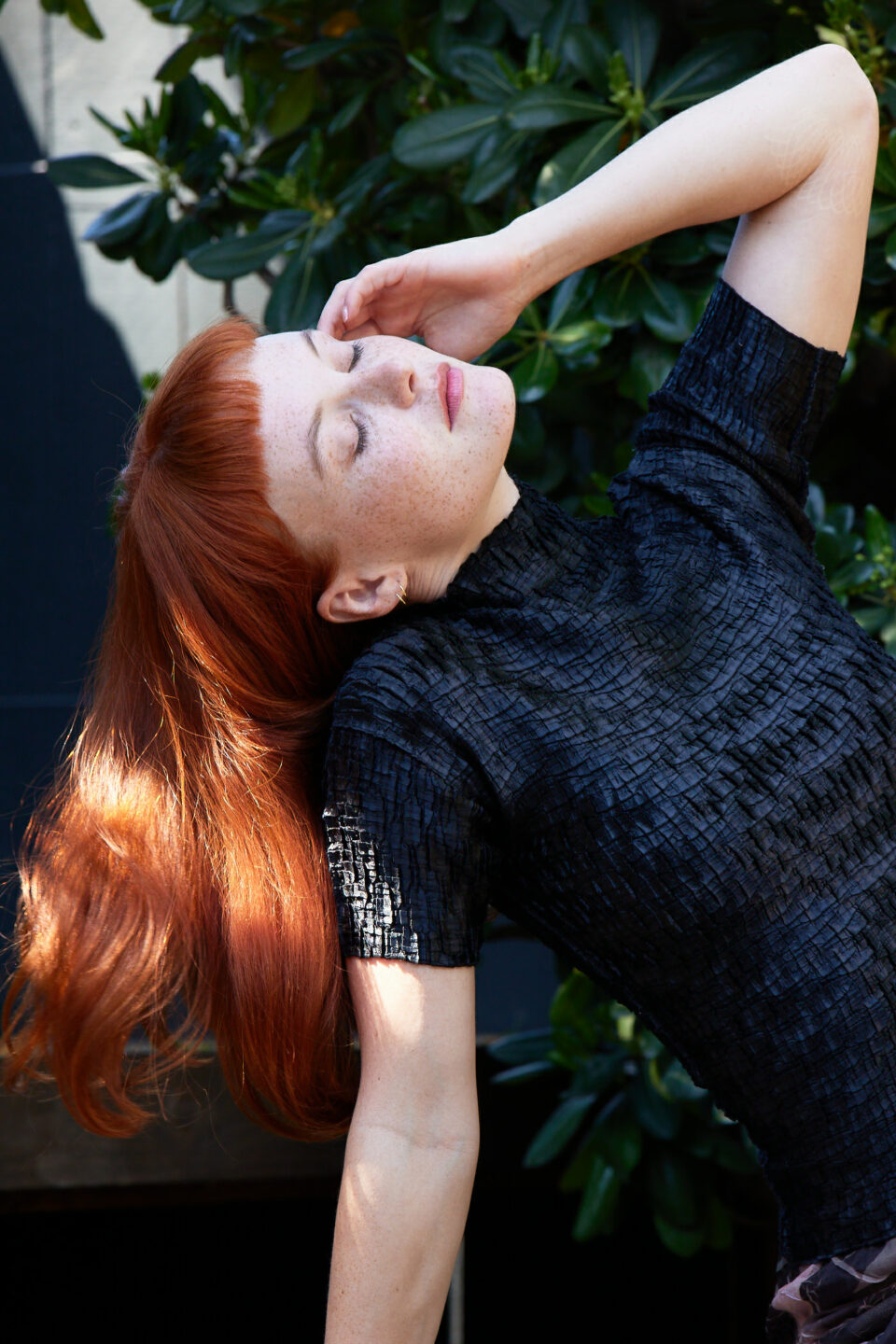
How do you balance not wanting to actively pursue perfection with making the best thing you possibly can?
It’s inherently who I am, and I think who artists are in general. In order to be a good musician you have a constant desire to get better. I’ve always really admired artists like Prince or Flea who’ve talked a lot about just constantly wanting to be a better musician. André 3000 is such a great example of this. As long as you constantly want to learn, some of your projects aren’t going to be great to other people’s ears, but they might do so much for you as an artist. It’s less about “let me make this great.” There’ll always be that motivation, because I feel like I always have something to prove. The goal is to accomplish something with these songs that I couldn’t say previously.
You mentioned some of the lyrical themes centered around depression. Can you go a bit further into what animates the album from a narrative perspective?
I was in a very long relationship—like six and a half years—and I’d been feeling things in that relationship that I wasn’t able to say to myself, or even in therapy or to friends. I’d go into this zone where I was writing and I’d convince myself I was just being petty. I thought they were petty-songwriter thoughts, but it was the way I was actually feeling and it was OK to feel that way. Also, I always turn to country music and have for the last three records as pillars of good songwriting. The specificity in country music is something that I’ve been trying to get closer to, just in being straightforward and really honest. It’s taken me a while to get to a place where I’m not being vague.




Were you nervous at all about working with a label again after leaving G.O.O.D. Music and self-releasing the last few records?
Yes, but I think the beauty of being a little bit older and signing a new deal is that I’m so skeptical of everyone in the music industry. You can promise me the world, but until you deliver, I don’t believe you. Your team is full of lovely people, but at the end of the day it’s still a label. I’m still going to put 110 percent into it. It’s been such a blessing, honestly, to have resources and a full label team again where I'm like, “Oh, I don’t have to do every single thing on my own.” That's incredible.
Did you always bring a level of skepticism to the industry?
No, I think that’s definitely learned from experience. When I signed my first deal I was 19 or 20. I was just so bright-eyed and bushy tailed, I was like, “These people are going to make me a star. That’s what happens in the music industry: You sign a record deal, they give you a lot of money.” It wasn’t even that much money in terms of deals, but it was more money than I’d ever seen. I grew up in a lower-middle-class family, and I had no perception of what the industry was. I just assumed everyone knew better than I did, which I think is so common. Then you find out, the longer you do it, that no one knows what they're doing. I don’t know a single person who knows what they’re doing.
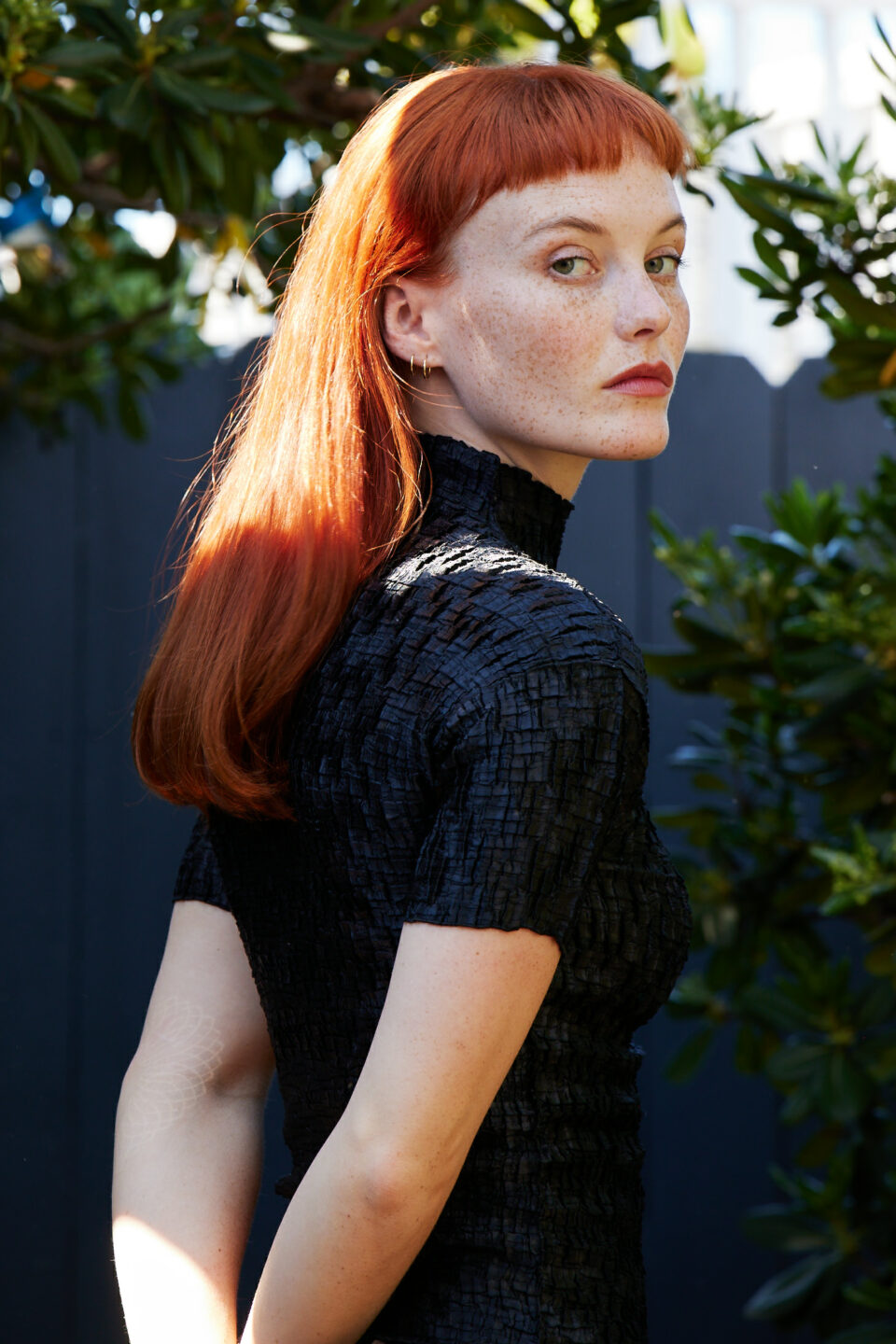
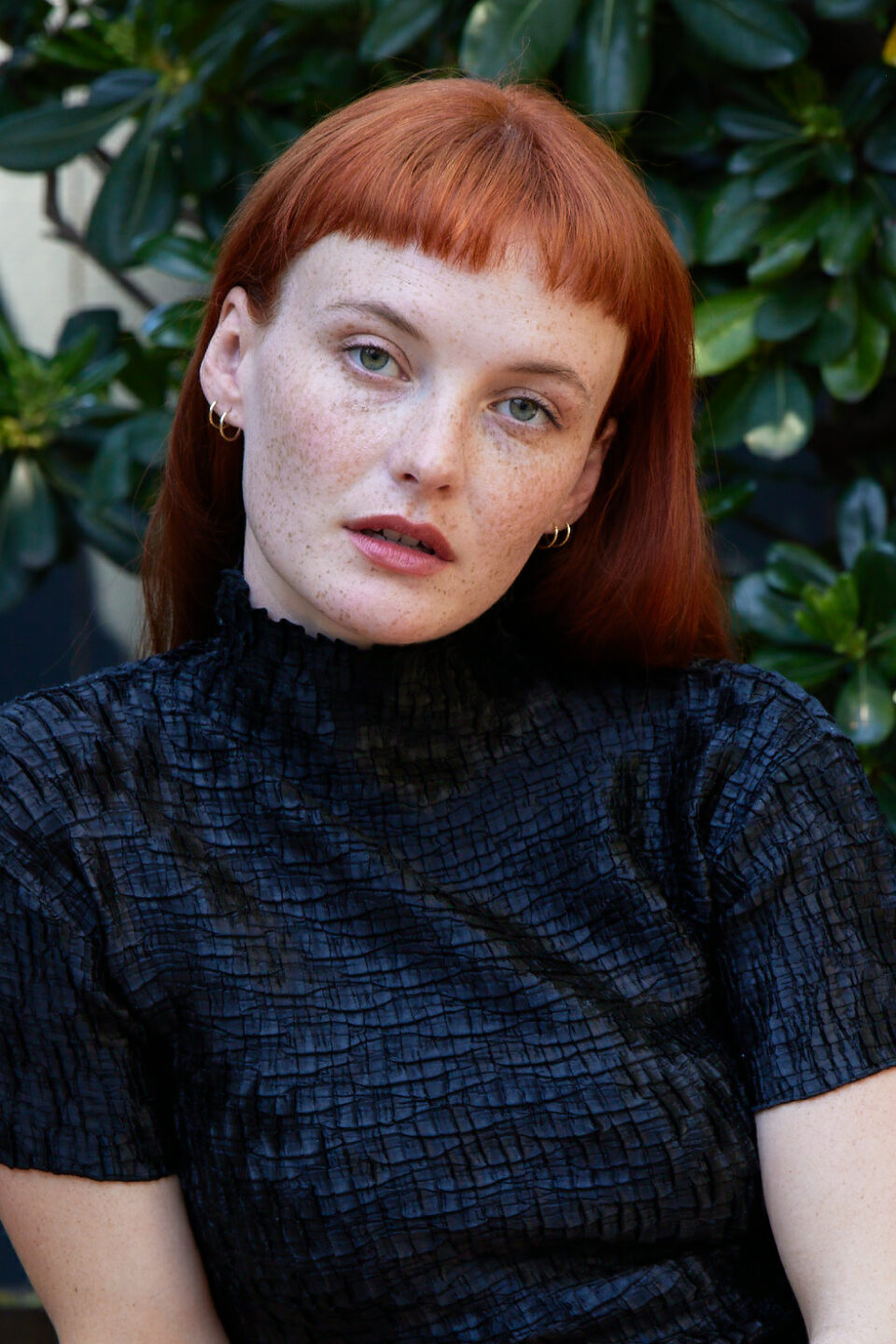
“The specificity in country music is something that I’ve been trying to get closer to, just in being straightforward and really honest. It’s taken me a while to get to a place where I’m not being vague.”
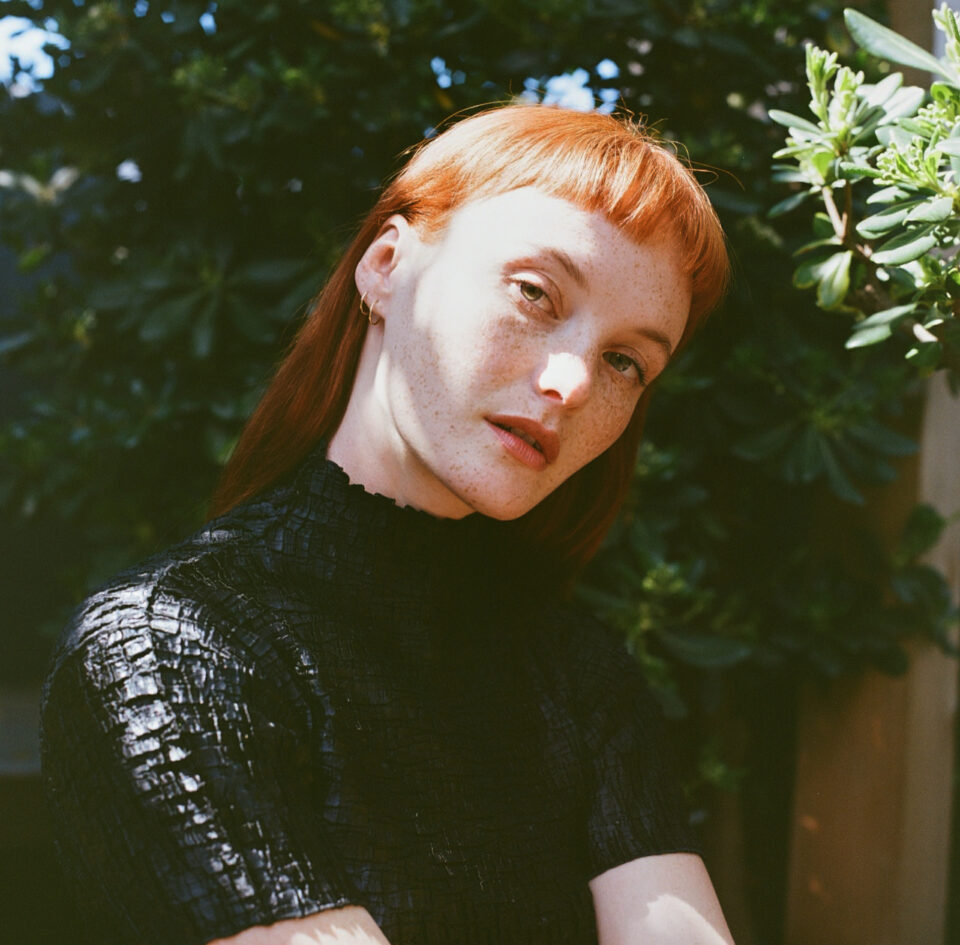
What do you hope Kacy Hill devotees take away from this record?
I just hope that it makes some kind of impact and feels meaningful. I still think it’s crazy when people message me about past records or songs I’m releasing and are like, “This saved me,” or “This made me feel good.” It’s a cliché, but that’s why people make music, and that’s why music exists. It’s such a good reminder, too, as I think music is undervalued in the world. Everyone expects music to be free. There’s a reason why historically we’ve paid people to make music.
People have no problem that the history of recorded music now costs $11 a month.
Yeah, totally. We’ve also been made to believe that it’s such a luxury to be able to make music—like, “Wow, you should be so grateful that that’s your job.” I am grateful that it’s my job, but if that’s the attitude you have toward every person who makes art or does creative stuff, that’s kind of shitty, because the world kind of sucks without people making music. I don't think a lot of people are willing to reckon with the way that they treat artists without even directly interacting with them. The fact that they can just pay the $11 or go see a show, they don’t really consider what goes into having to do this. There’s this perception that if you have fans or you have fame, you must have money—which really isn’t always true. Most people don’t make music to be famous. Fame is kind of a curse and kind of horrific in a lot of ways, and traumatic. It makes it so that your life isn’t really yours.
The boundaries have dissolved.
I feel the same way about making music sometimes. People feel so entitled to every aspect of your life, and it’s kind of invasive. I sound negative, but I wish there was a little more respect in honoring everything that comes with that. FL


